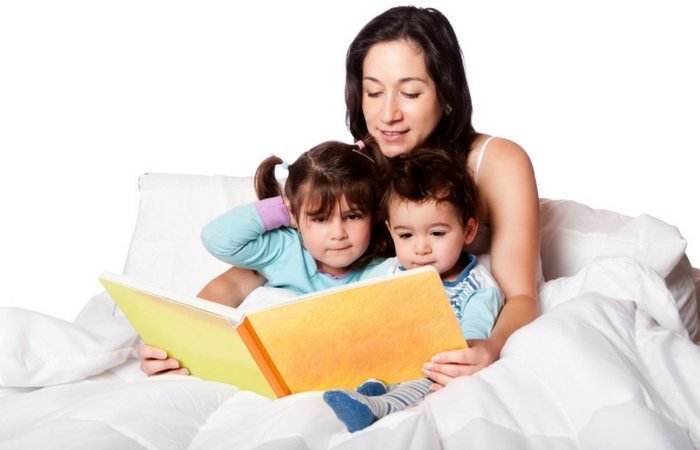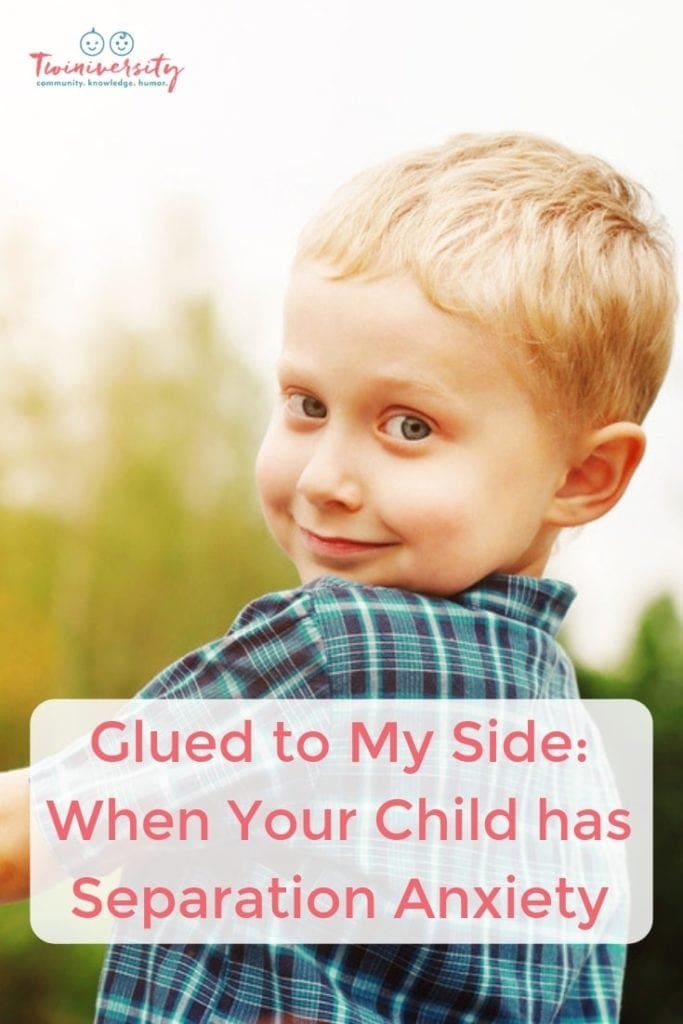Last updated on July 1st, 2024 at 03:01 pm
During typical development, babies often experience anxiety at about seven to eight months of age. At this time, unfamiliar people, places, or things may be frightening. Around ages 12-18 months, toddlers may first begin to experience normal separation anxiety when parents are not close. This type of separation anxiety usually disappears by age two. For many children, however, separation anxiety may persist into the preschool and school-age years or may crop up at different stages. This can be stressful not only for the child but also the parents. I am all too familiar with the stress associated with separation anxiety.
It started with one of our girls when we enrolled the kids in a dance class. She refused to enter the studio, screaming if she could not see me. Eventually, the dance teacher (who I should mention was my aunt!) allowed me to participate in a few classes, watch a few, and then I sat outside where I could watch through a two-way mirror. After about a month of these things, she started willingly going to dance and actually enjoyed them! After this hurdle, things seemed to be going well.
Then BOOM! The same child started getting upset when I left her with my mother (a favorite caregiver). Goodbyes became stressful and tearful. Eventually, she started being comfortable with me leaving her with familiar people, but when it was time for kindergarten she started worrying about being left at school. To make things worse, her sister shared many of the same fears about going to school without me. We managed to get through kindergarten using a variety of strategies:
Be Empathic About Separation Anxiety
When my kids are afraid of being away from me to try new things, I try to listen to their worries without dismissing them. It’s important for them to feel validated even if their fears seem trite. I also try to avoid being critical or impatient with them.
Investigate Beforehand
Before dropping the kids off at a new place or leaving them with a new babysitter, we try to research things beforehand. If we’ll be leaving the kids somewhere new, we may visit the new place by taking a little tour and pointing out essential things like restroom location. If for some reason, we can’t make a visit or formal introduction, we will go online to see pictures of people and places that will be new and discuss what to expect.

Reminder Token
Our girls have found comfort in having a little “token” that reminds them of me. We’ve found things like jewelry, a spritz of essential oil I like, or a keychain on their backpacks do the trick. During the school year, I like to pack little notes into their lunches as a reminder that I’m thinking about them.
Assign a Job
In order to distract the kids from missing me, I sometimes assign them a job to complete while I’m away. For instance, I’ve asked them to deliver gifts or supplies to the staff at the school, asked them to find out the answer to some question (e.g. what’s your teacher’s favorite snack?), or requested for them to do a little chore like clean out their locker. It doesn’t have to be anything monumental, just a little task that helps them focus their energy on something other than worrying and missing mama.
Make Introductions
Before leaving the kids with a new teacher or sitter we try to introduce them first. It’s important that they feel comfortable with any adults who are responsible for their care. When possible, we will look at pictures of new caregivers (Facebook and business websites are very helpful sources). Sometimes, we also scout out familiar peers who may be in the same class, etc. Finding a friendly face always helps ease worries.
Establish a Routine or Schedule
Because anxiety is often heightened by fear of the unknown, establishing routines has been very helpful for our kids. For our day to day routines, we use a visual checklist of what needs to be done so everything is clear and habitual for the kids. This really helps them prepare to be dropped off at school each morning. When we’re starting something new, I usually go over what will happen and sometimes write a quick list of what they’ll do. For example, when we started going to a new gym I wrote this down for them: drop off/ check-in; go to the play area; wait for your class to be called; go to gymnastics; return to play area; pick up. Because they are emerging readers I usually pair words with a drawing. I’ve also shown the kids on the clock what time I’ll be coming back. For instance, school ends at 3:00, so when the little hand is on the 3 it’s time for dismissal.

Don’t Play Hooky
There have been many instances my girls have whined about school and begged to stay home. As tempting as it was to enjoy a day of snuggles, they never stay home from school or other activities as a means of avoidance. It would be all too easy for them to learn how to whine their way out of commitments and difficulties in life.
Don’t Linger
When it’s actually time to depart, I say a quick goodbye and leave. It’s extremely difficult to leave them when they are unhappy, especially if there are tears. However, lingering sends the message that it’s not safe to be left, which only increases anxiety.
Return Promptly
I always try my best to return when I promise. If I say I’ll pick them up in an hour, I’m back in an hour. If I’m late they may worry that something terrible happened; only exacerbating any anxiety. Of course, life happens and it may be impossible to be punctual. Maybe there’s traffic or some sort of catastrophe. These things happen. When I’m late, I try to give the kids a reasonable explanation that they’ll understand without unneeded details.
If your child is experiencing separation anxiety, these strategies may help both of you cope. However; if your child has severe or chronic anxiety that interferes with daily life, your child may require professional help. Untreated anxiety can become worse over time, creating problems in adolescence and even adulthood. If your child is school aged, school counselors, school psychologists, and school social workers may be able to offer recommendations, support, and resources to help your child.

Amber Shawver and her husband, George, are the proud parents of girl-boy-girl-boy quadruplets who debuted in 2012. Amber draws from her experiences working in childcare settings and as a school based behavioral consultant to manage raising quadruplets at home. Amber continues to practice school psychology part-time in an urban school district. She chronicles life raising quadruplets at Four to Adore. You can also find her on Facebook, Pinterest, and Twitter.
Related Articles
- 5 Simple Ways to Teach Your Toddler Twins Responsibility
- When One Twin Is Ready to Be In A Separate Class Before the Other
- Managing Twins in Separate Classrooms
- Needy Twins: Why Are My Twins So Needy?

Resources
- American Academy of Pediatrics- “How to Ease Your Child’s Separation Anxiety”
- National Association of School Psychologists- “Anxiety and Anxiety Disorders: Information for Parents”
- Psychiatry Advisor- “Beyond Normal Attachment: Managing Childhood Separation Anxiety Disorder”
- Psychology Today- “Separation Anxiety”







